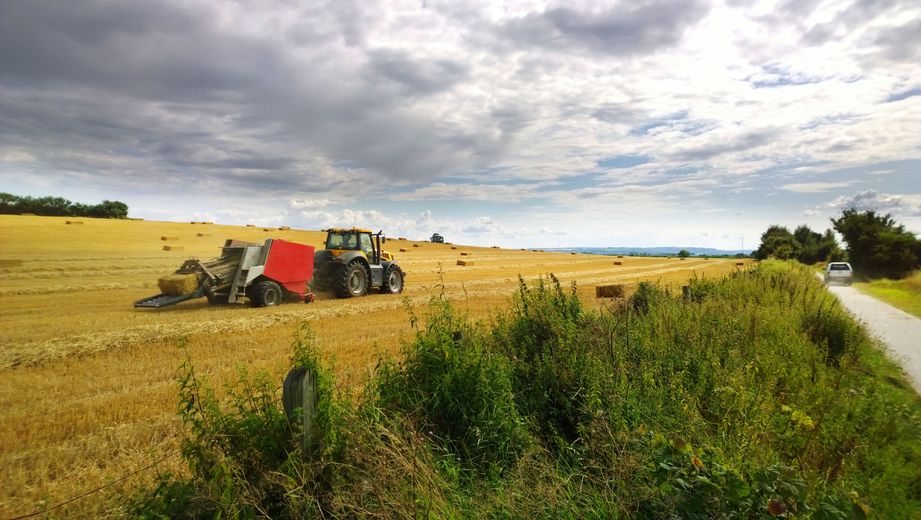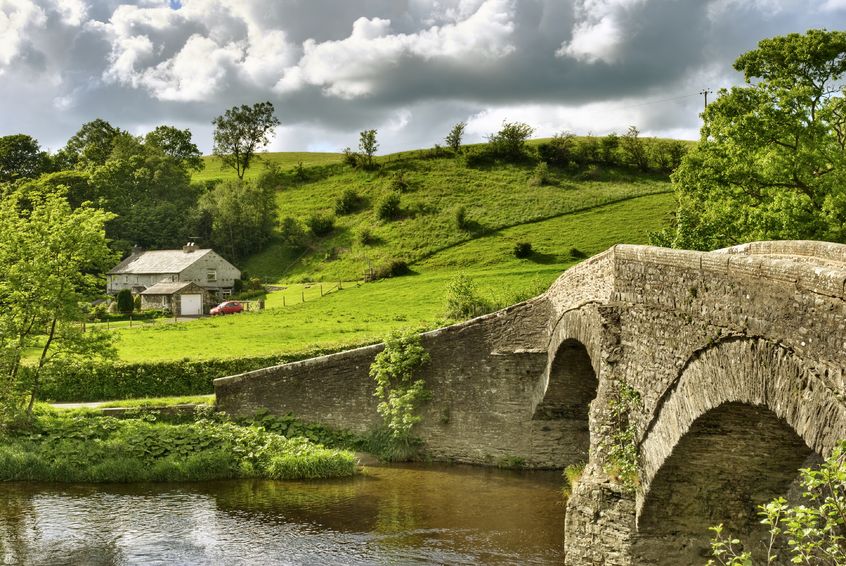
Farmers could benefit from a new scheme to direct millions of pounds towards farming methods that reduce flooding, provide clean water and restore wildlife, according to a new report.
The report, published today from Green Alliance and the National Trust, proposes a new model for green farming, which, it is hoped, will create new markets for sustainable land management.
Under the scheme, groups of farmers working together would sell flood protection and clean water to water companies and public authorities downstream.
Called Natural Infrastructure Schemes, the new model could see savings for organisations currently facing high costs from poor water quality and flooding.
Green Alliance calculates the cost of river flooding and water contamination to water companies, local authorities, public agencies and infrastructure operators at just under £2.4 billion a year.
Contracting to avoid just a quarter of these costs could release as much as £120 million for each of England’s 100 catchments over a 20-year catchment scale scheme.
'Inadequate' to deal with land pressures

Sue Armstrong-Brown, policy director at Green Alliance, said the old CAP subsidy-and-grant approach is "inadequate" to deal with the pressures on land and the realities of farm economics.
"The potential market for environmentally-beneficial farming could be worth millions – far more than the £400million available to farmers through government agri-environment schemes," Miss Armstrong-Brown said.
"We need to make farming part of the way the environment is returned to health, and that means making good environmental management pay."
Green Alliance and the National Trust will be working alongside leading landowners and businesses over the next 12 months, preparing to introduce pilot Natural Infrastructure Schemes in the UK.
Today’s report follows the National Trust’s call in August that restoring the natural environment should be at the centre of any replacement to the Common Agricultural Policy.

The conservation charity believes a focus on protecting and enhancing the ‘natural assets’ on which food production depends will open farming to new environmental markets that make it profitable and rewarding to manage land sustainably.
Producing great food and supporting the environment
Patrick Begg, rural enterprises director at National Trust, said farmers should be paid "fairly" for "producing great food" in a way that supports the long term health of British farmland.
"The Natural Infrastructure scheme is about creating a market for services from farming that today go unrewarded," Mr Begg said.
"Reducing flood risks, improving water quality and creating homes for wildlife, while at the same time opening up new revenue opportunities for farmers."
Welcoming the report, Christopher Price, director of policy at CLA, said that every day, alongside agricultural production, farmers and landowners deliver "valuable" environmental services such as reducing flood risk and helping tackle climate change.
"If we can connect, via markets and incentives, those who benefit with the land managers who do the work, then there is a real opportunity to grow this type of work and to amplify the benefits it delivers," Mr Price said.
Angela Francis, senior economist at Green Alliance, said in many places natural filtration and flood risk management are "already cheaper than hard engineering."
"Once you have a good that can be supplied for a price that a buyer wants to pay, you have a market," Miss Francis said.
"Natural Infrastructure Schemes put these factors together and provide an opportunity for us to start restoring nature now.
"The Natural Infrastructure Scheme could benefit upland farmers who are struggling to make ends meet."
'Makes good business sense'
Chris Clark, who farms at Nethergill Farm in the Yorkshire Dales, said: "As we prepare to leave the CAP, diversifying how we make money from our land makes good business sense.
"Setting up marketing groups for our green services would offer a great deal for farmers and for our customers.
"The appetite exists for doing things differently, if we can make it pay."
The Natural Infrastructure Scheme (NIS) is an area-based market in avoided costs, delivering environmental improvements by bringing together groups of land managers to sell ecosystem services to groups of beneficiaries.
The report was launched this morning at the Royal Society in central London.
Representatives from business, local government and the third sector debated how natural markets can benefit businesses and the environment.
